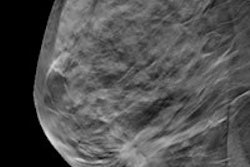A program begun in 2003 in southern France to screen individuals with biannual fecal occult blood tests (FOBT) has increased the yield of high-risk, precancerous polyps by 93%, researchers reported at the European Society of Medical Oncology (ESMO 2014) Congress in Madrid.
Results of the French trial of individuals at standard risk of disease ages 50 to 75 in the Côte-d'Or region are consistent with other studies demonstrating a positive outcome from screening programs, wrote Dr. Vanessa Cottet and colleagues from INSERM Unité 866 in Dijon, France. Because FOBT is so easy to perform and attracts so many screening subjects it may be more efficient than optical colonoscopy, though that test is more accurate and still considered the gold standard.
For people who have been identified as being at higher risk of developing colorectal cancer, a screening program that uses colonoscopy appears to be less efficient than using fecal occult blood tests, another group of French researchers reported at the meeting.
Dr. Sylvain Manfredi from CHU Pontchaillou in Rennes, France, and colleagues undertook another study to screen individuals determined to be at high risk of disease with optical colonoscopy. A total of 889 of the 1,179 patients underwent colonoscopy, yielding 253 neoplasias harboring 35 cancers, as well as advanced adenomas in 209 patients.
The positive predictive value of colonoscopy in this group was 3.9% for cancer, 12.9% for advanced adenoma, and 25% for adenoma overall -- results that compared poorly with the use of FOBT in the average-risk population, where a colonoscopy after a positive FOBT test yielded positive tests ranging from 7.5% to 10% for cancer, 15% to 27% for advanced adenomas, and 32% to 37% for adenomas.
The positive predictive value for colorectal neoplasia in the high-risk individuals screened by colonoscopy is lower than it is for average risk individuals screened by FOBT, they concluded.



















